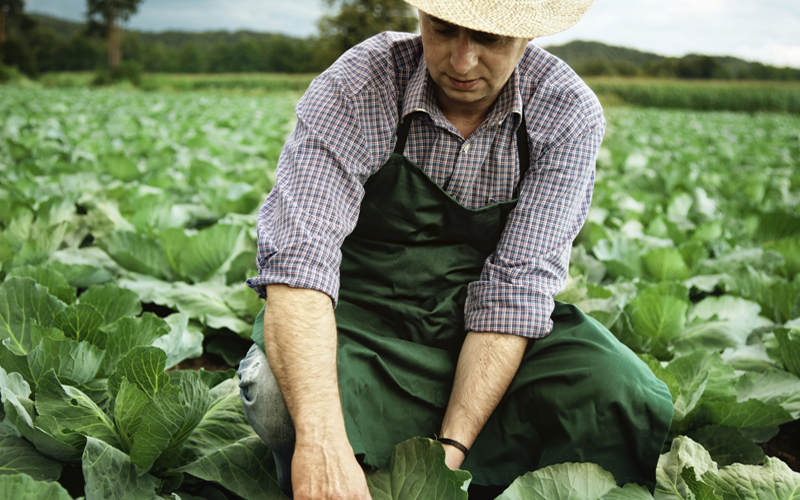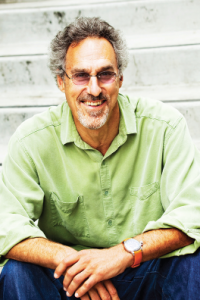
Editor’s Note: The following is excerpted with permission from the pamphlet “Commons nth: Common Sense for a Post Wall Street World,” by Woody Tasch, the founder of Slow Money. Over the past five years, more than $38 million has been invested in 350 small food enterprises via dozens of local Slow Money networks and investment clubs in the U.S., Canada, and France.
We need to discover a new kind of common sense.
Common sense that can bring people together after the tragedy of the commons and the age of exponential growth.
Common sense for an age in which capital markets, technological innovation and population have exploded, but so have military industrialism, fundamentalism, videogamism, Twinkieism, terrorism.
On the one hand, this new common sense is as simple as bringing some of our money back down to earth. On the other, it is as nuanced as the thread of a conversation that started when the first hunter-gatherer settled down in the Fertile Crescent and started to grow wheat.
This is a conversation about food, place, soil. It is a conversation about monoculture and diversity. It is a conversation about what we kill and what we grow. It is a conversation about the collateral damage caused by economic growth and how we use our wealth.
On July 11, 2014, the World Council of Churches made an historic recommendation that its 345 member churches, representing hundreds of millions of Christians worldwide, divest of fossil fuels. Bill McKibben, founder of 350.org, a leading voice on divestment, reflects:
When Harvard divested from tobacco stocks in 1990, then-president Derek Bok said the university did not want “to be associated with companies whose products create a substantial and unjustifiable risk of harm to other human beings.” Given that the most recent data indicates fossil fuel pollution could kill 100 million by 2030, the coal, oil and gas industry would seem to pass that test pretty easily.
If we wish to steer away from economic activities that do harm, divesting is critical. Equally critical is conscientious investing—the investing that comes after protesting and divesting.
Although I’ve worked for 30 years at the nexus of venture capital, social investing and philanthropy, I am not speaking, here, as a professional trained in any of those disciplines. I am speaking as an individual who wishes to reduce his complicity in institutionalized violence, military and economic. I am speaking as an individual who wishes to align his capital and his values whole-heartedly, rather than half-headedly.
The most conscientious financial action I can imagine is taking a little of my money out of there—abstract, derivatives-riddled explorations of the financial universe and fossil fuel-driven explorations of the earth’s crust—and putting it to work here—near where I live, in things that I understand, in enterprises that promote the health of my household, community and bioregion.
After years of experimenting and worrying and organizing and studying, it occurs to me that it is all really painfully simple: We are giving our money to people we don’t know very well, to invest in things they don’t understand very well, half way around the world in places we will never visit. Does this sound like the recipe for a healthy future? Isn’t there more than a little implicit and explicit violence in such a radical severing of relationships?
And after years of working at the nexus of venture capital, socially responsible investing and philanthropy, I have come to a conclusion that is both simple and nuanced: Making a loan to a local organic farmer or small food enterprise is the most conscientious, constructive and tangible action I can take to begin moving in a new direction.
Large industrial companies and multi-national corporations, and the mutual funds that invest in them, are too big, too diversified and too “tricky” for my taste, inevitably including commercial endeavors that are directly or indirectly at odds with my beliefs and hopes. This is not a wholesale indictment of these corporations or funds or the people who run them, some of whom are my friends. It is merely an acknowledgment of the realities of managing large pools of capital and using financial returns as the primary, universally applied, lowest common denominator metric, with social and environmental “metrics” as add-ons. And while the preceding few sentences are sure to ignite some vociferous objections from some of these same friends, I will merely add: Let’s spend less time with pro-Left or pro-Right arguments about the efficiency of capital markets or the efficacy of particular metrics or certification regimes. And, let’s devote more time to developing new flows of capital from and to the Radical Center.
Is there anything more deeply conservative and more deeply liberal than investing in small farms and local food systems?
This is direct action. It is undiluted. It is not distorted by the gravitational pull of distant pools of capital. It is supporting local entrepreneurship and creating jobs that will not be exported. It connects us to our neighbors and builds community. It connects us to the soil.
These are all wonderful benefits, but they come with a limiting factor: We can only do this with a little of our money, because it is, by definition, relatively inefficient. That is, it takes a lot of time and energy to put a little money to work this way.
Some will therefore opine: This is not scalable—individuals making small investments here and there will never add up to systemic change.
Others will opine: This is a vital part of a new peace movement.
The entirety of the pamphlet “Commons nth” is available at www.slowmoney.org.

Woody Tasch is the founder and chairman of Slow Money, a nonprofit headquartered in Boulder, Colorado, and the author of Inquiries into the Nature of Slow Money: Investing as if Food, Farms, and Fertility Mattered. Tasch is currently working on the sequel to his first book, revisiting the fundamental principles of Slow Money, based on the experience of the four years since launching the organization and movement. Today, trend spotters cite Slow Money as a solution to manage the interrelated issues of economic crisis, sustainability, food sourcing and cultural renewal.




I like your ideas very much. It’s hard to find mutual funds that focus on the kinks of things you are talking about. So go directly to the local farmer. My only question is how do you put that kind of investment approach into action for an IRA?